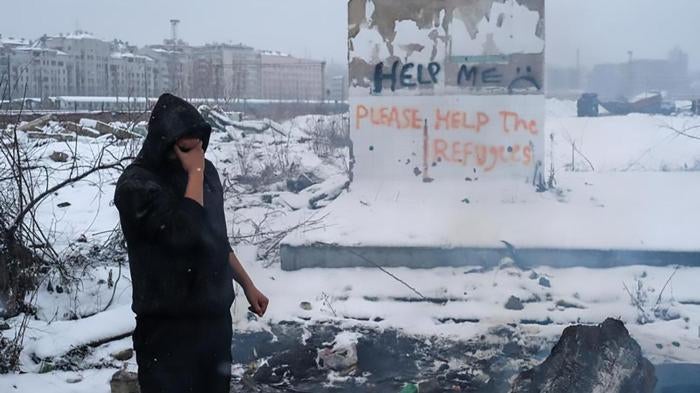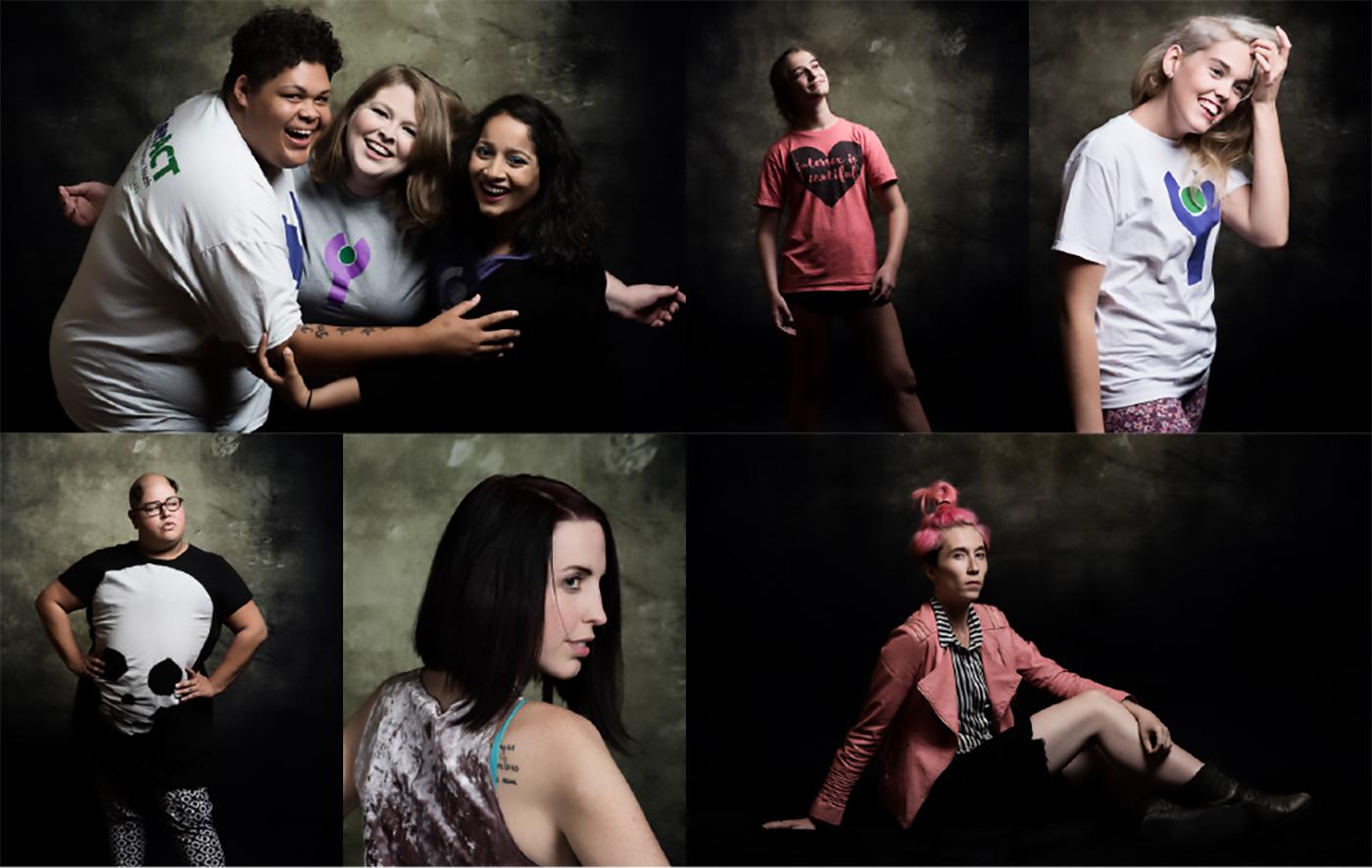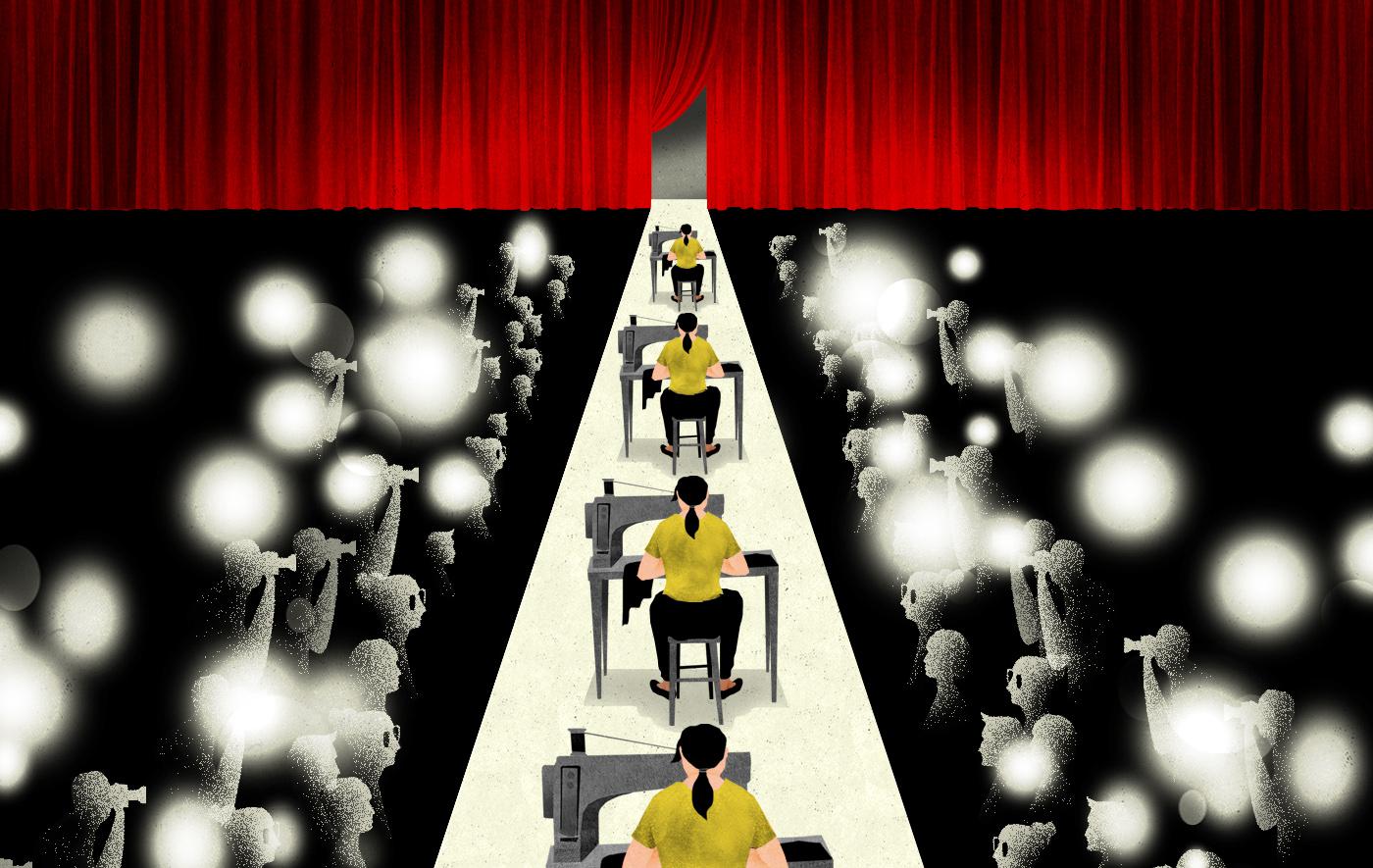Serbia
There was limited progress in closing the gap between Serbia’s human rights obligations and its practice. Reception conditions for asylum seekers remained poor and the asylum system flawed, even though numbers of persons seeking protection fell. Journalists continued to work in a hostile environment. Progress on war crimes prosecutions remained slow.
Migrants, including Asylum Seekers, and Displaced Persons
The number of new arrivals of asylum seekers to Serbia decreased again in 2017, reflecting ongoing restrictions along the Western Balkan migration route. Between January and October, Serbia registered 5,153 asylum seekers, compared to 10,201 during the same period in 2016. Afghans comprised the largest national group in 2017, followed by Iraqis and Syrians. By the end of August, the United Nations High Commissioner for Refugees (UNHCR) estimated that there were approximately 4,700 asylum seekers and migrants present in Serbia.
As of November, Serbia had granted refugee status to only one asylum seeker, a Syrian, and subsidiary protection to none. Since 2008, Serbia has granted refugee status to a total of 42 people and subsidiary protection to 49. The asylum procedure not only results in low recognition rates, but also in long delays before decisions are rendered.
By the end of October, the Ministry of Interior registered 132 unaccompanied children in Serbia, the majority from Afghanistan, compared to 127 during the same period in 2016. By November, there were a total of 250 unaccompanied children in Serbia. Serbia lacks formal age assessment procedures for unaccompanied children, putting older children at risk of being treated as adults instead of receiving special protection. Only three institutions exist in Serbia for unaccompanied children, with a total of 43 places. Other unaccompanied children stay in open asylum centers, such as reception and transit centers, often with unrelated adults, making them vulnerable to abuse and exploitation.
Progress was slow in finding durable solutions for refugees and internally displaced persons (IDPs) from the Balkan wars living in Serbia. According to the Serbian commissioner for refugees and migration, as of November, there were 27,802 such displaced persons in Serbia, compared to 35,300 during the same period in 2016, mostly from Croatia. There were 201,047 registered IDPs, majority from Kosovo, as of November, compared to 203,140 the previous year.
Freedom of Media
Attacks and threats against journalists continued. The authorities’ response was inadequate. Between January and mid-November, the Independent Journalists’ Association of Serbia (NUNS) registered 75 incidents of violence, threats or intimidation against journalists, including six physical attacks. Pro-government media outlets continued to engage in smear campaigns against independent outlets and journalists.
In May, daily Danas journalist Lidija Valtner was covering the inauguration of Serbian President Aleksandar Vucic when two people dragged her away by the neck and tried to take her mobile phone. According to Valtner, two plain clothes police officers watched the assault without helping. Police were investigating the incident at time of writing. At the same event, journalists working for Vice, Radio Belgrade, and the daily Insajder claimed unidentified persons used physical force and threats to prevent them from reporting during the event.
In January, the High Court of Belgrade fined political weekly NIN for allegedly damaging the reputation of the Minister of Interior of Serbia in a June 2016 article concerning property demolitions in Belgrade’s Savamala district.
A commission established to investigate the murders of three prominent journalists, Dada Vujasinovic in 1994, Slavko Curuvija in 1999, and Milan Pantic in 2001, made slow progress in its work. Two of the four state security officials charged with involvement in Curuvija’s killing were released from custody to house arrest in July. A third defendant is serving a 40-year sentence for unrelated crimes, while the fourth is on the run. The other two killings remain unsolved.
Accountability for War Crimes
War crimes prosecutions were hampered due to lack of political support, insufficient staff, and other resources at the Office of the War Crimes Prosecutor, and weak witness support mechanisms. The Serbian parliament finally appointed a new war crimes prosecutor in May, after an 18-month-long vacancy.
Few high ranking officials implicated in serious wartime abuses have been held to account in Serbian courts. Between January and August, 17 war crimes trials were pending before Serbian courts. The war crimes prosecutor issued two new indictments during the same period. Between January and August, first instance courts delivered no judgments. The appeals court overturned convictions of three people. Between January and August, 11 cases were still at investigation stage. Since the establishment of the War Crimes Prosecution Office in 2003, 124 judgments have been issued, 82 people convicted and 42 acquitted.
The first trials in Serbia for war crimes in Srebrenica started in February. Eight Bosnian Serb former police officers are charged with the killing in a warehouse of more than 1,300 Bosniak civilians from Srebrenica in July 1995. In July, the Belgrade Appeals Court dismissed the charges, stating that the prosecutor who filed the charges was not authorized to do so. The new war crimes prosecutor has yet to file new charges needed to schedule a trial.
In May, the Appeals Court in Belgrade confirmed charges against five Bosnian Serb former fighters indicted in 2015 for abducting and killing 20 civilians on a train in Strpci in Bosnia and Herzegovina in 1993.
Also in May, the Appeals Court acquitted two Bosnian Serb ex-fighters of all charges related to the killing of a Bosniak civilian in 1992.
In April, the war crimes prosecutor brought charges against a Bosnian-Serb ex-police reservist for war crimes against civilians in Sanski Most in Bosnia and Herzegovina in 1992.
Chief Prosecutor Serge Brammertz at the International Criminal Tribunal for the Former Yugoslavia (ICTY) urged Serbia in June to officially acknowledge the crimes committed in Srebrenica in 1995 as genocide.
Following the January arrest in France of former Kosovo Prime Minister and Kosovo Liberation Army fighter Ramush Haradinaj based on a Serbian arrest warrant, a French court in April rejected Serbia’s extradition request. Haradinaj is wanted in Serbia on war crimes charges. He has been twice acquitted by the ICTY of war crimes during the 1998-1999 Kosovo conflict.
Human Rights Defenders
Human rights defenders operate in a hostile environment. Online threats against human rights activists are commonplace and rarely investigated by authorities. Pro-government media smear human rights defenders as “traitors” and “foreign mercenaries.”
In January, in the town of Beska, party members from the ruling Serbian Progressive Party attacked and ejected nine activists from the nongovernmental organization (NGO) Youth Initiative for Human Rights, who organized a protest during a pre-election campaign debate. Two of the human rights activists required hospitalization, and one activist’s car was vandalized. Authorities were investigating at time of writing.
Sexual Orientation and Gender Identity
Attacks on and harassment of lesbian, gay, bisexual, and transgender (LGBT) people and activists occurred regularly. Serbian LGBT rights organization DA SE ZNA!, between August 2016 and August 2017, recorded 79 incidents against LGBT people, including nine physical attacks, 12 threats and 56 cases of hate speech, mainly on social media. Investigations are often slow and prosecutions rare. The Pride parade in September took place without major incidents and was attended by the first female and openly lesbian prime minister of Serbia.
Treatment of Minorities
Roma face discrimination, particularly in relation to housing. Police in Belgrade detained and abused a Romani couple in May after they reported their car was stolen, according to the European Roma Rights Centre.
Key International Actors
Throughout the year, several visits by Federica Mogherini, high representative for foreign affairs and security policy; European Council President Donald Tusk; and Commissioner on European Neighbourhood Policy and Enlargement Johannes Hahn, focused on Serbia’s European Union accession and the Belgrade-Pristina process, but failed to publicly address the need for improvements in human rights. In June, the European Parliament stressed the need for further reforms in the areas of human rights and the rule of law.
The 2016 US Department of State Human Rights report, published in June, identified discrimination and violence against Roma, harassment of journalists, overcrowding in prisons, and threats against members of the LGBT community as particularly serious human rights concerns.
The United Nations Committee on the Rights of the Child in its March concluding observations expressed concerns that children with disabilities continue to be over-represented in residential care institutions, and recommended authorities reduce the placement of children under three years in residential care.
In July, Serbia endorsed the Safe Schools Declaration, committing to do more to protect education during times of armed conflict.
In its April concluding observations, the UN Human Rights Committee expressed concern over the treatment of journalists, particularly through prosecutions, and recommended stronger protection for media workers. It also expressed concern about hate crimes, particularly against Roma, and recommended proper investigation and prosecution. The committee also called on Serbia to tackle delays in the asylum procedure, poor conditions in receptions centers, and inadequate age assessment procedures.
In February, Council of Europe Human Rights Commissioner Nils Muižnieks expressed concerns with regards to forced evictions of Roma, the lack of legal safeguards in the process of such evictions, and failure by authorities to provide alternative accommodation.
Kosovo
Slow progress on human rights was marred by a political deadlock following snap elections in June, with a government only formed in September. The special court to try serious war crimes committed during the 1998-1999 Kosovo war was made operational and is expected to file its first indictments. Journalists faced threats and intimidation, and prosecutions of crimes against journalists were slow. Tensions between Serbs and Kosovo Albanians continued, particularly in the north. Roma, Ashkali, and Egyptian communities continue to face discrimination. The process of normalizing relations with Belgrade made limited progress.
Accountability for War Crimes
In July, after months of delay, Kosovo’s Constitutional Court approved the revised rules of procedure and evidence for the Specialist Chambers and Specialist Prosecutor’s Office, the Hague-based court tasked with trying serious war crimes committed during the 1998-1999 Kosovo war. This allows the court to issue first indictments. The court is set to adjudicate cases investigated by the Special Investigative Task Force, prompted by a 2011 Council of Europe report accusing some Kosovo Liberation Army (KLA) members of abductions, beatings, summary executions, and the forced removal of human organs in Kosovo and Albania during and after the Kosovo war. Senior KLA fighters are expected to be indicted and stand trial. The court will operate under Kosovo laws, with 19 international judges, appointed by the European Union in February. The EU in June approved a one-year budget for the court.
In January 2017, Kosovo’s special prosecutor charged an ex-paramilitary Serbian man with war crimes in Kosovo Polje in 1999. The suspect is charged with torturing civilian ethnic Albanians.
In February, the prosecutor issued 57 warrants of arrest of Serbian citizens suspected of war crimes, without providing further details of those wanted.
By early September, mixed panels consisting of the European Rule of Law Mission (EULEX) and local judges handed down five decisions related to war crimes. Formal investigations were underway in 34 cases, and 374 cases were pending at a preliminary investigation stage. EULEX has been involved in a total of 43 verdicts since established in 2008.
The Human Rights Review Panel, an independent body set up in 2009 to review allegations of human rights violations by EULEX staff, ruled in eight cases between January and October, four of which were follow-up decisions in earlier cases where violations had been found by the panel. Thirty cases were pending before the panel at time of writing.
Accountability of International Institutions
The United Nations failed to follow recommendations made in 2016 by the Human Rights Advisory Panel (HRAP), an independent body set up in 2006 to examine complaints of abuses by the UN Interim Administration Mission in Kosovo (UNMIK), that the UN apologize and pay individual compensation to lead poison victims forced to live in UNMIK-run camps in northern Kosovo after the 1998-1999 war. Victims are displaced members of the Roma, Ashkali, and Balkan Egyptian communites.
In May, UN Secretary-General Antonio Guterres proposed a watered-down plan to create a voluntary trust fund for community assistance projects not specifically targeting those affected by lead poisoning. At time of writing, no states have contributed to the trust fund.
Treatment of Minorities
Roma, Ashkali, and Egyptians continue to face problems acquiring personal documents, affecting their ability to access health care, social assistance, and education.
There was slow implementation of a new strategy for the integration of Roma, Ashkali, and Egyptian communities. The strategy was adopted in 2016 and focused on improving civil registration, access to housing, education, health care, and employment. Public funds to finance the strategy’s programs were lacking.
Inter-ethnic tensions continued during 2017 particularly in Kosovo’s divided north. Kosovo police registered 15 cases of inter-ethnic violence between January and August 2017, involving disruption of public order, defamatory graffiti, incitement of religious, ethnic and racial hatred, and light bodily injury, without specifying the total number per category, making effective scrutiny of police response to inter-ethnic violence difficult. Kosovo police in August stated that cases were under investigation.
Women’s Rights
Domestic violence remained widespread in Kosovo. Inadequate police response, few prosecutions and failure by judges to issue restraining orders against abusive spouses contributed to the problem. The government in April adopted a new National Strategy and Action Plan against Domestic Violence, replacing a 2011-2014 strategy, and in May launched the Crime Victim Compensation Program. As a result victims are now able to seek compensation from the state for their injuries.
Asylum Seekers and Displaced Persons
During the first nine months of the year, the United Nations High Commissioner for Refugees (UNHCR) registered 333 voluntary returns of members of ethnic minorities to Kosovo, up from 276 during that period in 2016.
The Kosovo Ministry of Internal Affairs registered 2,480 forced returns to Kosovo between January and October, including 159 Roma, 138 Ashkali, and 17 Egyptians. Ethnic data was missing for the month of June. Among those forcibly deported to Kosovo, 646 were children. Most of these forced returns were from Germany and returnees received limited assistance upon return.
Sexual Orientation and Gender Identity
Gay rights activists reported an increase of hate speech online against lesbian, gay, bisexual, and transgender (LGBT) people in October, in connection with Gay Pride in Pristina. The October Pride event was the first of its kind ever held in Kosovo. In July, gay rights activists issued a call to challenge marriage laws in Kosovo, which define marriage as strictly between two people of different sexes, as being contrary to the constitution.
Freedom of Media
Threats and attacks against journalists continued in 2017, while investigations and prosecutions were slow. Between January and August, the Association of Journalists of Kosovo registered nine cases of threats and violence against journalists, including one physical attack, two cases of intimidation, one of property damage, and five threats. Police were investigating at time of writing.
In August, Parim Olluri, an investigative journalist and director of online publication Insajderi, was physically attacked by unknown assailants outside his home in Pristina. Olluri received medical treatment for minor bodily injuries. He stated that he believes the assault was connected to his work as a journalist. Police were investigating at time of writing. The Organization for Security and Co-operation in Europe (OSCE) representative on freedom of the media, Harlem Desir, in August condemned the attack.
In April, Arbana Xharra, editor-in-chief of daily paper Zeri, was subjected to intimidation when an unknown assailant, or assailants, painted a cross in blood-red paint next to the apartment where she lives with her husband and child. The case remained unresolved at time of writing.
In October, the editor-in-chief of the online newspaper Insajderi, Vehbi Kajtazi, was physically attacked in a cafe in Pristina. Police were investigating the attack at time of writing. Kajtazi has been physically attacked and threatened in the past, and cases remained unresolved.
Key International Actors
In his quarterly report on the situation in Kosovo, UN Secretary-General Guterres in May expressed concern about ethno-nationalist sentiments, and called on parties to act responsibly to diminish inter-ethnic tensions. Guterres also addressed the concerns of families whose relatives are still missing since the conflict, and urged authorities to do more to investigate what happened to them.
The US State Department Human Rights Report on Kosovo, published in March, raised concerns about violent obstructions of the parliament by opposition parties resulting in the blocking of free debate and passage of legislation, and the lack of accountability for government corruption. The report also noted societal violence and discrimination against members of religious and LGBT communities, intimidation of media, violence against displaced persons seeking to return to their homes, domestic violence and discrimination against women, and discrimination against ethnic minorities, particularly Ashkalis, Egyptians and Roma.
At the invitation of Kosovo, the EU deployed an Election Observation Mission, whose report highlighted some shortcomings including a disturbing pattern of intimidation within Serb-majority areas. In June, the European Parliament called on Kosovo to strengthen the role of the ombudsman and to increase efforts to protect minorities.
Over the year, EU leaders repeatedly met with their Kosovar counterparts but failed to raise human rights concerns, often focusing on the normalization of Kosovo’s relations with Serbia.





